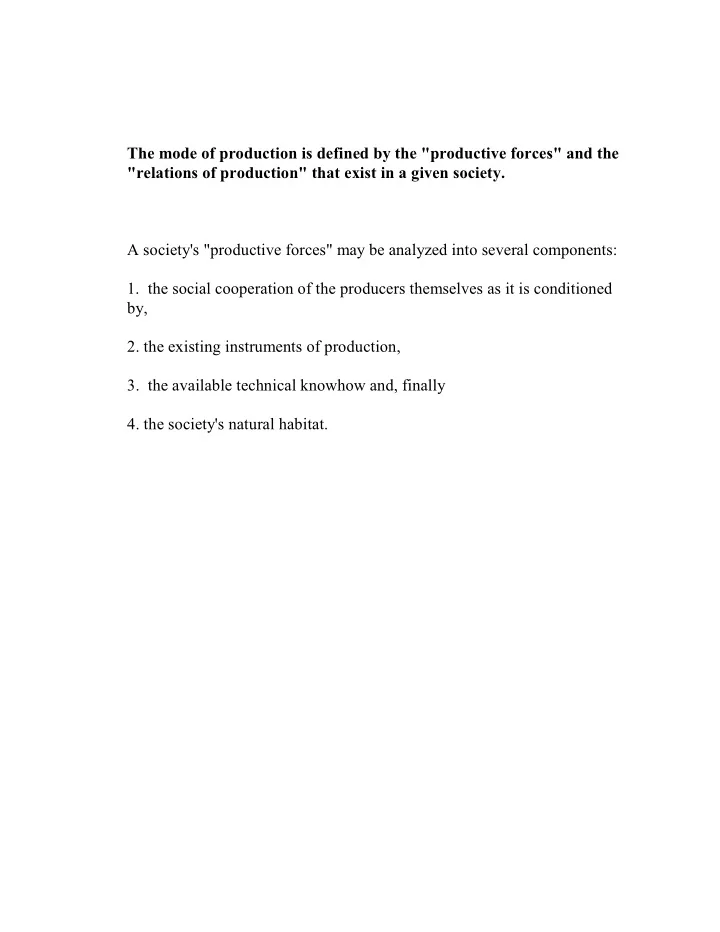

The mode of production is defined by the "productive forces" and the "relations of production" that exist in a given society. A society's "productive forces" may be analyzed into several components: 1. the social cooperation of the producers themselves as it is conditioned by, 2. the existing instruments of production, 3. the available technical knowhow and, finally 4. the society's natural habitat.
CONCLUSIONS • Marx and other thinkers who have developed “stage theories” of social change (or social evolution) have been heavily criticized for making claims about the inevitability of capitalism leading to socialism and eventually communism. Such criticisms have been based on logical and empirical grounds. • However, Marx did provide some key insights into the workings of capitalist society in particular. • Contemporary political economists have drawn upon the work on Marx in examining the nature of inequality between classes, and amongst regions and nation states. • In particular, the imagery of class conflict developed by Marx has been developed further by latter sociologists. And there are particular applications of this type of analysis in the realm of environmental sociology. • Also, Marx’s insights about the interrelation of cultural, political, and legal systems with the economic system have been important. • Further, the trend for capital to become concentrated in the hands of relatively few super-corporations, and the accompanying concentration of power of within these corporations in a system of increasing globalization accords with a number of insights that Marx had about the increasing concentration of capital and power in the hands of a few. • While he did not actively pursue the relationship between nature, natural resources, and society, such relationships were implied in his conceptualization of “productive forces” – and this left the door open for “green” political economists to pursue such relations further.
Recommend
More recommend